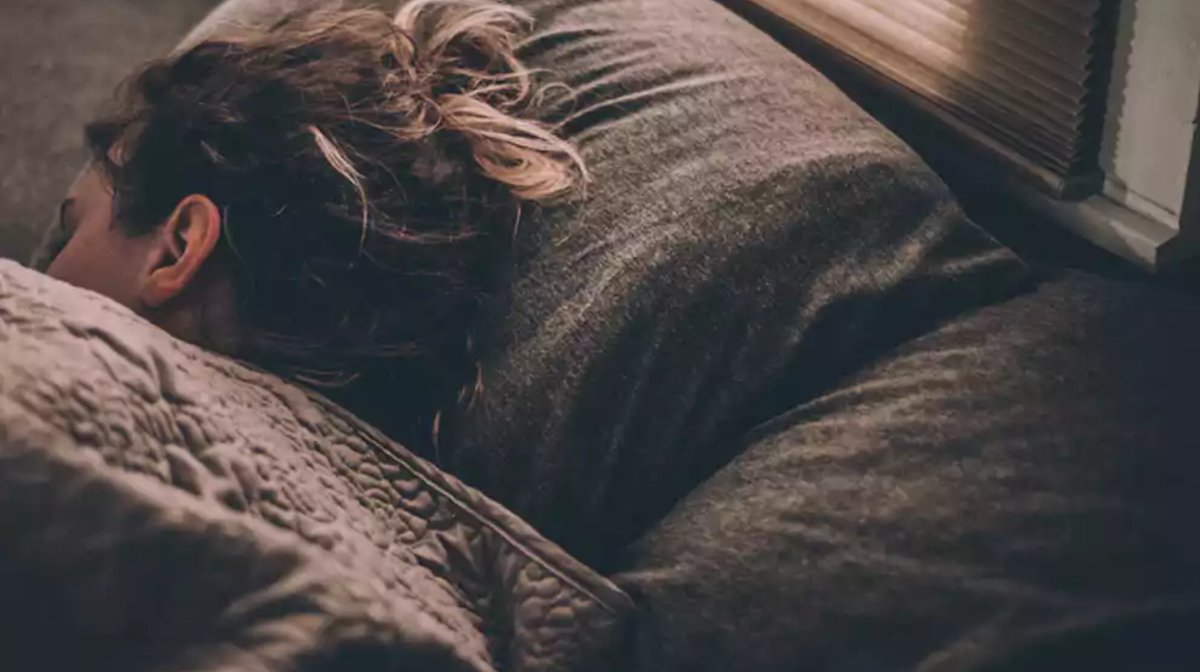If you struggle to fall asleep or you often find yourself tossing and turning through the night, you’ve come to the right place. In this guide, we’ll explore the importance of sleep and how to improve your sleep quality, so you can change the way you recover and improve your energy levels during the day.
Is sleep important?Yes! You already knew the answer. Sleep is incredibly important for your mental and physical health. Not only is sleep deprivation often linked to weight gain, but good sleep can also help improve concentration and productivity throughout the day. Need more? A good night’s sleep can also:
- Enhance athletic performance
- Reduce the risk of heart disease and stroke
- Reduce inflammation
- Improve mood
- Strengthen the immune system
- Improve ability to interact socially
Not to mention, a good night’s sleep can work wonders for your skin! Nobody likes undereye bags and making sure you get enough sleep is the best way to keep them at bay, so there’s another great reason to be interested in sleep.
How much should I sleep?The amount of sleep you need will change throughout your life and will be influenced by your age, gender, health, and daily activity. On average, adults need around seven to nine hours of sleep a night. Teenagers need more sleep than adults to help support their development, and as you age, the amount of sleep you need might change again.
To work out how much sleep you need, pay attention to how you feel. There are several reasons you might not feel tired at bedtime, and one of them could be that you’re getting too much sleep. The same applies if you’re super-tired when you hit the sheets. Are you sleeping too little?
Why can’t I sleep?There are plenty of factors that can affect the way you fall asleep, from things you’ve done in the day to how you act right before bedtime. If you’re worried about falling asleep, your anxiety could make the problem worse. Try not to stress. It might even help to remove the clock from your bedroom so you can’t count down the hours of sleep you have left.
Other things that can cause problems falling asleep include:- Drinking alcohol before bed
- Drinking caffeine too close to bedtime
- A big meal before bed
- A snoring partner
- Snoring yourself! You can visit your doctor for advice
- Stress and anxiety
- Hunger
- Light
- Noise
- An uncomfortable bed
- An irregular sleep routine
That might seem like a lot of obstacles, but most of them are easy enough to overcome. Getting your sleep routine back on track will take a little thought and effort, but it’ll be worth it when you’re springing out of bed each morning!
How to improve sleep qualityIf you’re struggling with sleep, there are some things you can try to improve your sleep quality and ensure you’re giving yourself the best rest.
One of the most important things is to make sure you’re following a good sleep routine. Try to go to bed at the same time every night (with the odd exception!) and wake up between seven and nine hours later every day. After a while, your body will start to recognise your sleep pattern. Who knows? Maybe you can cut down to just one alarm.
To improve your sleep quality, you’ll need to make sure your bedroom is a peaceful environment that you can relax in. Try to remove any distractions from your room, like your phone (sorry), and any other devices. You should also try to make sure your bedroom is dark enough at night and quiet enough for you to fall asleep easily. If you can’t control these things, try an eye mask or earphones!
Your body temperature can also affect the way you sleep. If you wake up in the night feeling cold, try warmer pyjamas or a thicker duvet. If you’re too hot, open a window or sleep with a thinner blanket.
How to fall asleep naturally – Step by StepFalling asleep is the part a lot of people struggle with. Laying in bed, tossing and turning for hours after bedtime can cause anxiety and take away from the amount of good sleep you get. In the next sections, we’ll explore some natural sleep remedies to help you drift off better.
Essential oils and sleepEssential oils can help promote relaxation and good sleep, making them a good natural aid if you’re struggling to settle down. With so many types of essential oils available, knowing where to start can be tough.
Here are some of the best essential oils for relaxation and sleep:
- Lavender, like Cello Lavender Fresh Essential Oil, to help slow down your nervous system and heart rate
- Vanilla, to calm your mind. Lots of beauty products use vanilla, so you can try one of these before bed instead of essential oil if you’d prefer
- Jasmine, like Cello Jasmine Essential Oil, for reduced anxiety and better sleep
- Ylang Ylang, like Cello Ylang Essential Oil, for reduced stress and anxiety
To make the most of essential oils for sleep, try adding them to a warm bath just before bed, and soak in the steamy water for at least ten minutes. Breathe deeply and let your essential oil do its thing.
Aromatherapy and sleepAromatherapy is a type of therapy which uses scent to help with physical and emotional health. It’s a great way to enjoy all the benefits of your favourite essential oils at home. There are so many different essential oils, which means there are plenty of types of aromatherapy to try.
The easiest way to enjoy aromatherapy in your home is through an essential oils scented candle or reed diffuser. Here are some of our favourites for sleep:
- Price's Elegance Imperial Jasmine Reed Diffuser 250ml
- I Love Vanilla Milk Reed Diffuser 100ml
- Candlelight Calm Reed Diffuser 100ml
- Cole & Co Jasmin & Ylang Ylang Reed Diffuser 200ml
- Yankee Candle Dried Lavender & Oak Reed Diffuser 120ml
- Woodwick White Teak Ellipse Candle 453.6g
- Price's Imperial Jasmine Large Signature Candle
- Woodwick Sea Salt Vanilla Medium Jar Candle 275g
- Woodwick Amber and Incense Large Jar Candle 609.5g
Set up an essential oil diffuser in your bedroom or light a candle before bed and read for a while before you sleep. The soothing scents of your aromatherapy and the peaceful environment of your bedroom should help get you feeling sleepy in no time.
Relaxation and meditationNew to meditation? The practice can help improve the way you think and feel by giving you a new perspective. Meditation is a skill, and it’s not always easy to start. Thankfully, there are loads of great apps available to help.
Meditation and sleep go hand in hand. When you meditate, you rest your body and focus your mind, creating the perfect conditions for a dreamy night’s sleep. Set up your favourite aromatherapy and settle in for ten minutes of meditation before bed. Not only can it help improve the quality of your sleep, but meditation can also reduce anxiety throughout the day and lead to better mental health overall.
Create a perfect bedtime routineYour bedtime routine plays an important role in the way you sleep. Of course, everyone’s bedtime will be different depending on lifestyle and personality, but here’s an idea of what a great one looks like:
- Take a warm bath with a few drops of essential oils in the water
- Wash and moisturise your face
- Brush your teeth
- Get dressed into a set of clean, comfortable pyjamas
- Light an essential oil candle to help relax
- Make sure your bedroom is dark and quiet
- A short period of meditation, unguided or using an app
- Get into bed
- Read a good book until you feel sleepy
- Lights out
Tweak and tailor your bedtime routine to suit your lifestyle. You might want to have a little snack before bed or listen to some soothing music to help yourself relax. Try some different things until you find the sleep routine that suits you, then stick to it, completing each step at roughly the same time every night.
Looking for more health and lifestyle advice? Keep exploring our blog for all the latest, as well as the best in skincare, makeup, beauty, and fragrance.








